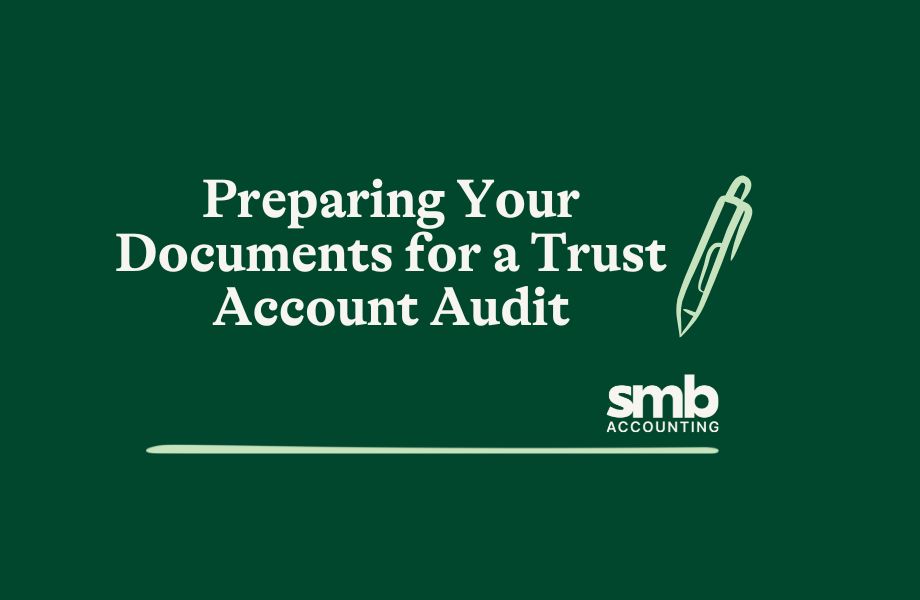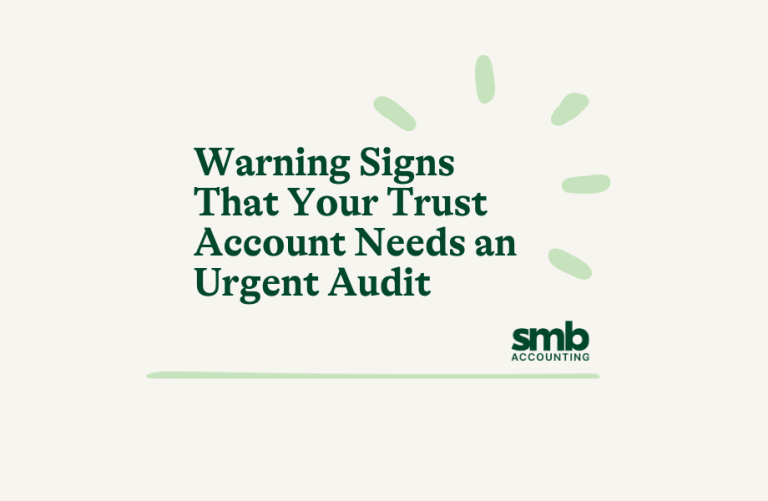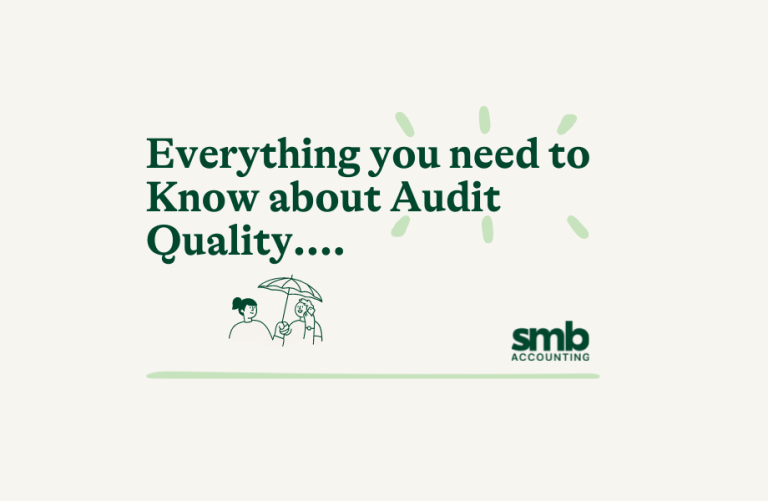When it comes to managing a trust account audit, preparing your documents in advance can make a world of difference. Imagine it like packing for a holiday: methodical sorting and planning can prevent a lot of headaches later on. Similarly, getting all your paperwork in line ahead of time ensures a smoother audit process, allowing you to stay organised and focused on what truly matters, running your business.
Proper preparation isn’t just about ticking legal boxes or following regulations; it’s an effective way to keep your stress levels low. It provides clarity on where things stand financially, making it easier to spot any discrepancies early and correct them. By being proactive, you can transform something often seen as overwhelming into a straightforward, manageable task.
Understanding Trust Account Audits
A trust account audit is a detailed examination of financial records that ensures funds are handled responsibly. Think of it like a yearly check-up for your financial accounts, confirming that everything is in the right place. This type of audit is particularly crucial for businesses situated in the Sunshine Coast area, where maintaining financial integrity and adhering to local compliance standards are key to avoiding legal pitfalls.
In areas like Sunshine Coast, Brisbane, Caloundra, and Maryborough, specific regulatory requirements need to be met. For instance, these locations often have unique local practices and compliance measures, making it important to stay up to date. Addressing these aspects not only keeps your business in line with legal expectations but also builds trust with clients and stakeholders who rely on you to handle their funds transparently.
Different locations might have varied demands on how trust accounts should be managed. Therefore, understanding these differences helps you adapt your approach and maintain compliance with ease. Preparing ahead ensures you aren’t caught off guard by changes in regulations and can keep your operations smooth and efficient, avoiding unnecessary hiccups during the audit process.
Key Documents Needed for a Trust Account Audit
When preparing for a trust account audit, having the right documents is as crucial as packing a suitcase with the correct essentials for a trip. You’ll need to keep several specific documents on hand, and it’s best to ensure they’re consistently updated and well-organised throughout the year. This approach not only makes the audit process more manageable but also helps prevent last-minute scrambling for paperwork.
Here’s a list of documents you need to have ready:
– Client ledgers detailing every transaction.
– Bank statements that match the records in your ledgers.
– Reconciliation reports showing how the figures in your ledgers align with your bank statements.
– Receipts for every transaction to provide concrete evidence for your records.
The importance of keeping these documents organised cannot be stressed enough. It’s like having a neatly-arranged bookshelf; it’s much easier to find what you’re looking for without overturning the entire place. Throughout the year, establish a routine of updating records monthly. This consistency ensures your documents are always accurate and ready when the audit approaches.
Steps to Organise Your Documents
Getting your documents in order might feel like a big task, but breaking it down into simple steps makes it much less overwhelming. Start by gathering all necessary paperwork in one place. This initial step is akin to putting all your holiday clothes in one pile before you start packing.
1. Create categories for different types of documents, such as financial statements, receipts, and transaction records. This helps in grouping similar documents together for easy access.
2. Use digital tools to manage your paperwork efficiently. Scanning documents and saving them digitally ensures that they’re safe and easily searchable.
3. Keeping a checklist of required documents ensures you don’t overlook any critical paperwork. It’s like a travel checklist that saves you from forgetting essentials at home.
4. Address any missing or incomplete records promptly. If something’s amiss, take immediate steps to correct it to avoid unnecessary complications during the audit.
Following these steps not only streamlines the auditing process but also fosters a habit of detailed record-keeping that benefits your business operations.
Benefits of Professional Help
Engaging professional accounting services can significantly ease the preparation process. With expert insight, the task becomes less burdensome, ensuring thorough compliance and identifying potential issues before they evolve into bigger problems. SMB Accounting offers invaluable support throughout trust account audits, enabling your business to maintain impeccable financial standards.
Wrap-Up: Staying Audit-Ready Year-Round
Being prepared for a trust account audit is all about staying organised and proactive. Consistently maintaining and updating your financial records ensures you’re always ready. By adopting these habits, your business can face audits without stress, knowing everything is in perfect order.
Remember, keeping your documents in check and staying aware of local compliance needs not only protects your business but also enhances the trust and confidence your clients place in you. Investing the time to organise now prevents headaches later and helps your business maintain smooth operations throughout the year.
Ensure seamless compliance and financial clarity with the help of trust account audits from SMB Accounting. Our expert guidance alleviates the complexities of managing audits, letting you focus on running your business with confidence. Don’t let the next audit catch you off guard; partner with professionals who understand your needs. Reach out to SMB Accounting to keep your operations efficient and compliant year-round.




